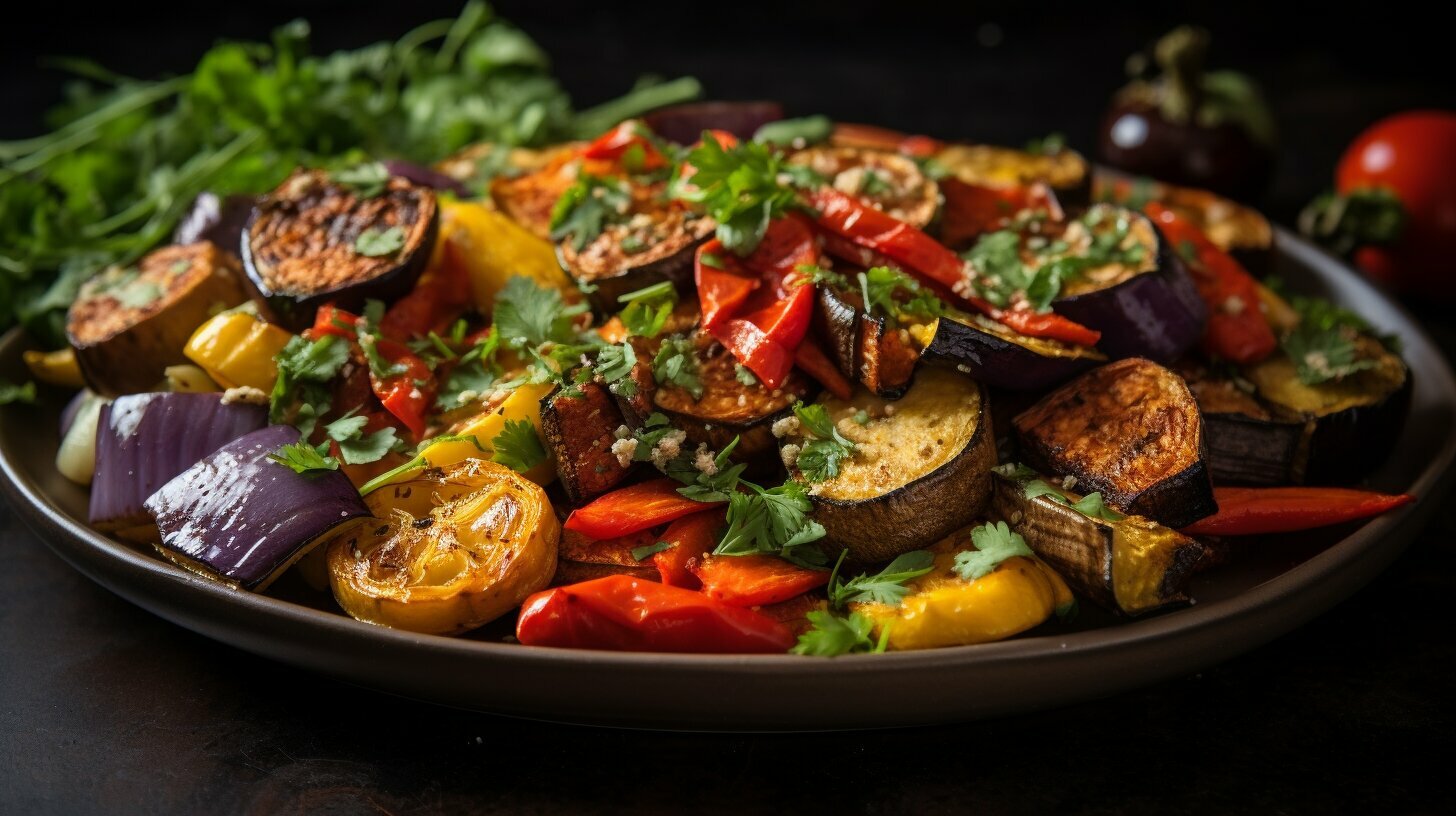If you’re looking to add a unique twist to your culinary creations and promote overall health, look no further than wild onion. This versatile plant offers a wide range of applications, from enhancing the flavors of your dishes to providing various medicinal benefits.
Wild onion has been used for centuries in traditional medicine practices and offers a rich nutritional profile, making it an excellent addition to your diet.
Disclosure: When you buy through links on our site, we may earn an affiliate commission.
Key Takeaways
- Wild onion can be used in various culinary dishes, providing a unique and delicious flavor.
- It also offers various medicinal benefits and has been used in traditional medicine practices for centuries.
- Incorporating wild onion into your diet can contribute to your overall health and well-being.
- With proper cultivation and harvesting techniques, you can grow your own wild onion.
- As with any new addition to your diet or health regimen, it’s essential to be aware of any potential precautions and side effects.
Culinary Uses of Wild Onion
Wild onion is a versatile ingredient that can add a unique flavor and aroma to your dishes. Here are some culinary uses of wild onion:
- Add chopped fresh wild onion to omelets and scrambled eggs for a delicious breakfast dish.
- Use wild onion as a garnish for soups and stews to add a fresh, oniony taste.
- Add wild onion to salads for a punch of flavor and a pop of color.
- Use wild onion instead of green onion in recipes for a stronger onion flavor.
- Make a wild onion pesto with nuts and olive oil to use as a spread or sauce.
If you’re wondering how to use wild onion in your cooking, here are some useful tips:
- Use the green tops and the white bulbs of wild onion for different flavor profiles.
- Chop wild onion finely to avoid overpowering the dish.
- Wild onion pairs well with potatoes, eggs, cheese, and meats.
- Substitute wild onion for regular onion in any recipe to add a unique flavor.
Looking for some recipe inspiration? Here are some delicious recipes that use wild onion:
| Recipe | Description |
|---|---|
| Wild Onion and Potato Frittata | A classic Italian egg dish with the addition of wild onion and potatoes for extra flavor and texture. |
| Wild Onion and Cheese Quesadilla | A Mexican-inspired dish featuring melted cheese and wild onion in a crispy tortilla. |
| Wild Onion and Mushroom Risotto | A creamy Italian rice dish with wild onion and mushrooms for depth of flavor. |
Try incorporating wild onion into your cooking for a unique and delicious twist on your favorite recipes!
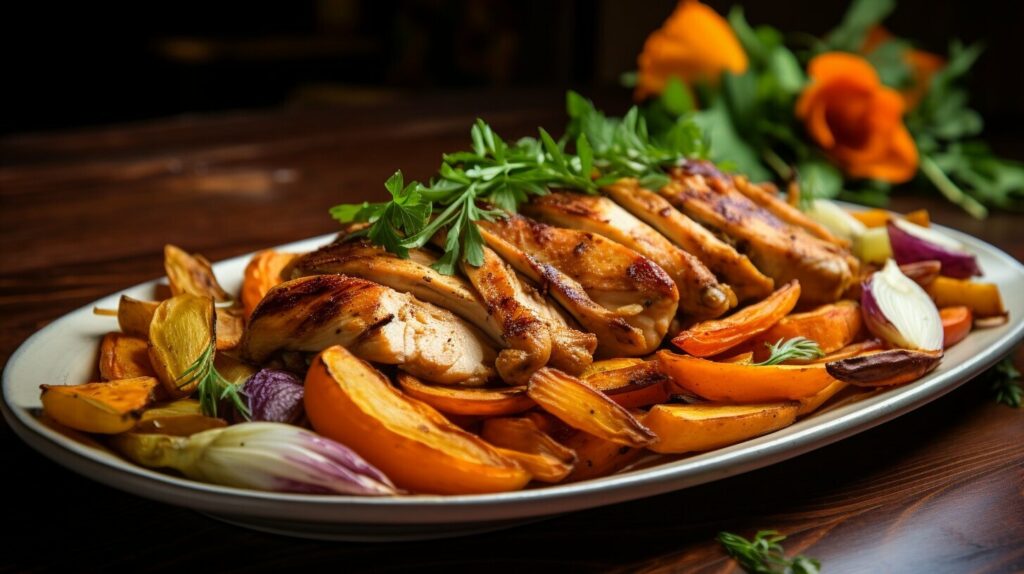
Medicinal Properties of Wild Onion
Wild onion has been used for centuries for its medicinal properties. From ancient Egypt to Native American tribes, wild onion has been incorporated into traditional medicine practices to treat various ailments. Let’s discover the different medicinal benefits that wild onion offers and how it has been traditionally used to promote wellness.
The Medicinal Benefits of Wild Onion
Wild onion has been shown to have anti-inflammatory and antibacterial properties. The sulfur compounds found in wild onion may help to reduce inflammation and fight off harmful bacteria in the body. Additionally, wild onion is a rich source of antioxidants that can help to protect the body against oxidative stress, which is linked to many chronic diseases.
Wild onion has also been traditionally used to promote respiratory health. The plant’s expectorant properties can help to relieve congestion and loosen mucus in the lungs. Moreover, research has shown that wild onion can be effective in treating coughs, colds, and other respiratory illnesses.
Wild Onion in Traditional Medicine
Wild onion has a long history in traditional medicine practices. In ancient Egypt, it was used to treat kidney and bladder problems, while in China, it was used to treat digestive issues and stimulate appetite. Native American tribes also used wild onion to treat respiratory issues, colds, and flu symptoms.
In traditional medicine practices, wild onion has been used to treat a variety of conditions, including asthma, arthritis, high blood pressure, and digestive problems. Wild onion was often made into a tea or poultice and applied directly to the affected area of the body.
Using Wild Onion Safely
While wild onion offers many health benefits, it’s important to use it safely. Some people may be allergic to wild onion and should avoid consuming it. Additionally, wild onion may interact with certain medications, so be sure to consult with your doctor if you are taking any medications before incorporating wild onion into your diet or using it as a natural remedy.
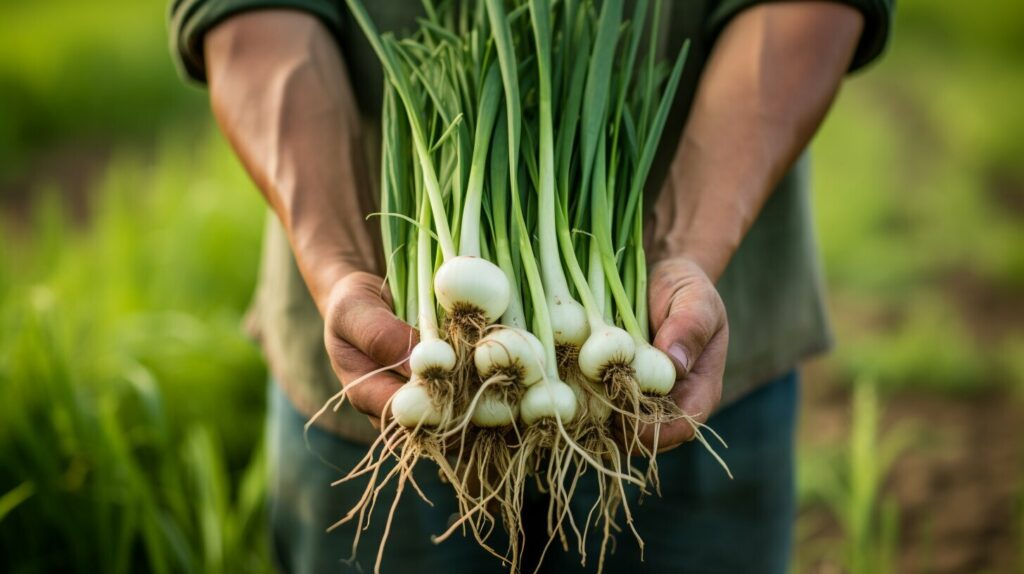
Overall, wild onion is a powerful plant with numerous medicinal benefits. Whether you incorporate it into your diet or use it as a natural remedy, wild onion can help to support your overall health and well-being. Remember to use it safely and consult with a healthcare professional if you have any concerns.
Nutritional Value of Wild Onion
Wild onion is a nutrient-dense ingredient that can add flavor and enhance the nutritional value of your meals. Here are some of the key vitamins and minerals found in wild onion:
| Nutrient | Amount Per 100 grams |
|---|---|
| Fiber | 3.2 g |
| Vitamin C | 17.9 mg |
| Vitamin B6 | 0.26 mg |
| Potassium | 280 mg |
| Iron | 1.8 mg |
| Calcium | 37 mg |
| Magnesium | 23 mg |
In addition to these nutrients, wild onion contains antioxidants such as quercetin and kaempferol, which can help protect against oxidative damage in the body.
Adding wild onion to your diet is a great way to increase your intake of essential vitamins and minerals. Consider incorporating it into salads, soups, or stir-fries for a nutrient boost.
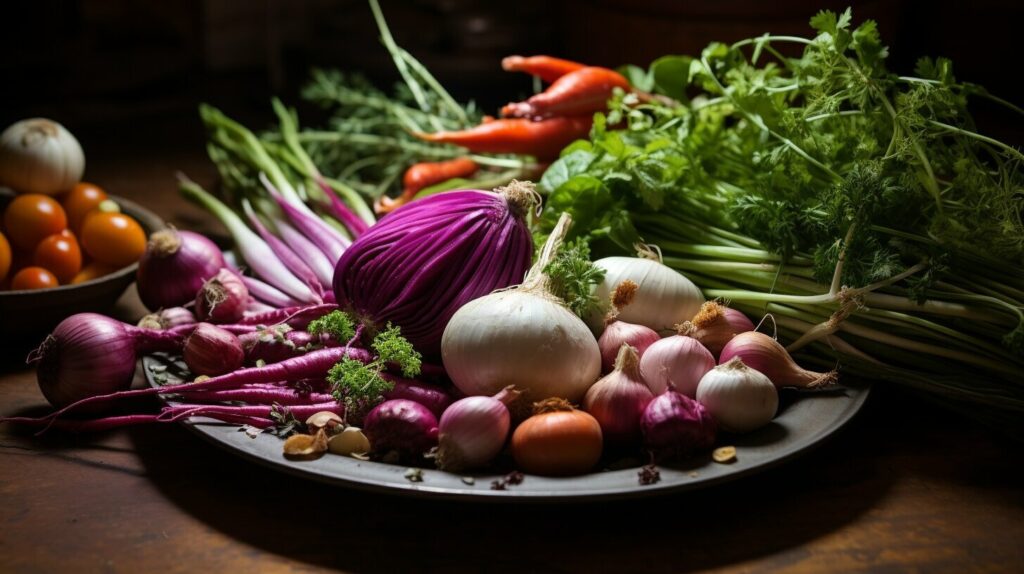
Wild Onion in Cooking: Recipes and Tips
Wild onion is a versatile ingredient that can add a unique twist to a wide variety of dishes. Whether you’re using it as a garnish or as a key ingredient, wild onion can elevate the flavors of your meals and add a touch of depth and complexity.
There are many ways to use wild onion in your cooking, from simple salads to hearty stews. Here are a few recipe ideas to get you started:
- Wild Onion and Potato Soup – This simple soup is a great way to showcase the flavors of wild onion. Start by sautéing diced onion, celery, and garlic in a large pot. Add diced potatoes, vegetable broth, and a handful of chopped wild onion. Let the soup simmer until the potatoes are tender, then blend until smooth for a creamy, satisfying dish.
- Wild Onion and Goat Cheese Tart – This tart is a perfect appetizer for a fancy meal or as a light lunch. To make it, spread goat cheese on a puff pastry base and top with sliced wild onion. Bake in the oven until the pastry is golden brown and the onions are caramelized.
- Wild Onion and Mushroom Stir-Fry – This stir-fry is a great way to showcase the savory side of wild onion. Start by sautéing mushrooms and diced onion in a wok or large skillet. Add sliced wild onion and stir-fry for a few more minutes until the flavors are well combined.
When using wild onion in your cooking, it’s important to remember that the flavor can be quite potent. Use it sparingly at first and taste-test as you go to ensure that the flavors are well-balanced.
Here are a few more tips for incorporating wild onion into your meals:
- Use wild onion as a garnish for soups, salads, and sandwiches.
- Chop wild onion finely and mix it into burger patties or meatloaf for a burst of flavor.
- Sauté wild onion with other vegetables as a tasty side dish.
With these recipes and tips, you can take full advantage of the culinary uses of wild onion and enjoy its unique flavors in a variety of ways.

Health Benefits of Wild Onion
Wild onion offers an array of health benefits that can help boost your overall well-being. Here are some of the many ways wild onion can contribute to your health:
- Antioxidant: Wild onion is rich in antioxidants, which can help neutralize harmful free radicals in the body and reduce the risk of chronic diseases like cancer and heart disease.
- Anti-inflammatory: The sulfur compounds found in wild onion have anti-inflammatory properties that can help alleviate symptoms of inflammation in the body, such as joint pain.
- Immune system booster: Wild onion contains vitamins and minerals that can support a healthy immune system, helping your body fight off illness and infection more effectively.
- Heart health: Wild onion has been shown to help lower cholesterol levels and reduce the risk of heart disease.
- Digestive aid: The high fiber content in wild onion can aid in digestion and help prevent constipation.
- Cancer prevention: The sulfur compounds in wild onion have been shown to have cancer-fighting properties, particularly in preventing stomach and colorectal cancer.
These are just a few of the many health benefits that wild onion can offer. By incorporating this versatile ingredient into your diet, you can enjoy its delicious taste while reaping the rewards of its numerous health-promoting properties.

Wild Onion in Traditional Medicine
For centuries, wild onion has been used in traditional medicine practices for its numerous health benefits. Historically, wild onion was used to treat various ailments, such as coughs, colds, and digestive issues. In some cultures, wild onion was also believed to have aphrodisiac properties.
The medicinal benefits of wild onion come from its high levels of sulfur compounds, which have antibacterial, antiviral, and anti-inflammatory properties. Sulfur compounds are also known to have cancer-fighting properties, making wild onion a valuable addition to traditional cancer treatments.
Wild onion was also used by Native American tribes for its healing properties. The Cherokee tribe used it to treat earaches and headaches, while the Iroquois used it to treat respiratory infections and fevers.
If you’re interested in incorporating wild onion into your own traditional medicine practices, be sure to consult with a healthcare professional first. While wild onion is generally safe to consume in small to moderate amounts, it can interact with certain medications and may cause allergic reactions in some individuals.
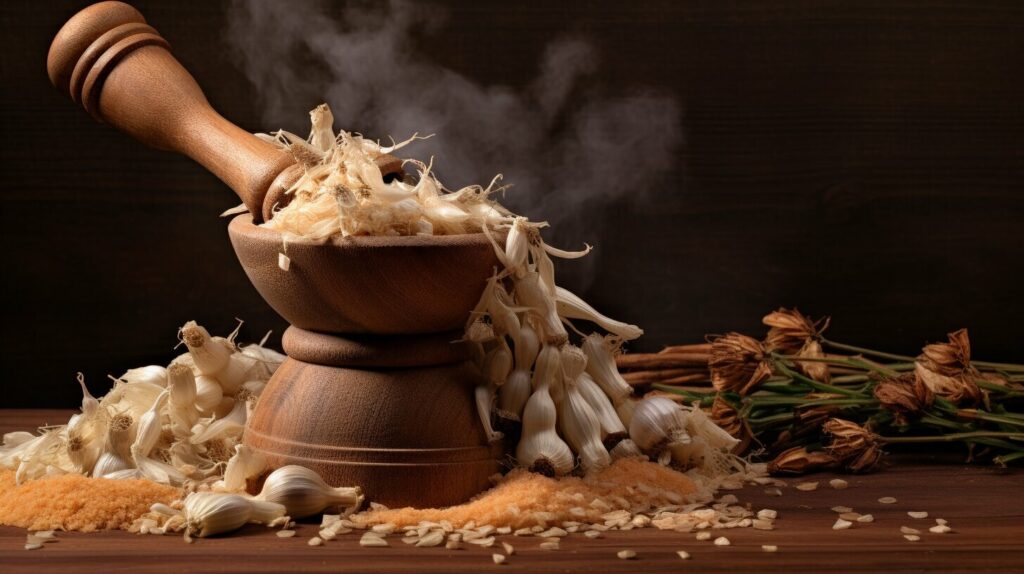
Traditional Medicine Recipes Using Wild Onion
If you’re curious about using wild onion in traditional medicine remedies, here are a few recipes to try:
| Remedy | Ingredients | Instructions |
|---|---|---|
| Sore Throat Relief | 1 cup hot water, 1 tablespoon honey, 1 tablespoon fresh wild onion juice | Mix ingredients together and drink while warm. |
| Nasal Congestion Relief | 1 cup hot water, 1 tablespoon fresh wild onion juice, 1 teaspoon honey | Mix ingredients together and drink while warm. |
| Headache Relief | 1 cup hot water, 1 tablespoon fresh wild onion juice, 1 teaspoon honey | Mix ingredients together and drink while warm. |
Remember, these recipes are not a substitute for professional medical treatment, and you should always consult with a healthcare professional before incorporating wild onion into your own traditional medicine practices.
Cultivating and Harvesting Wild Onion
If you’re interested in growing your own wild onion, it’s important to understand the ideal conditions for cultivation and the best harvesting techniques. By following these guidelines, you can ensure a successful harvest and a plentiful supply of this versatile plant.
Cultivating Wild Onion
Wild onion is a hardy plant that can thrive in a variety of environments. However, it prefers well-draining soil and plenty of sunshine. When planting wild onion, choose a location that receives at least six hours of direct sunlight each day.
Although wild onion can be grown from seeds, it generally grows more successfully from bulbs. To grow wild onion from bulbs, plant them about 2 inches deep and 4-6 inches apart in well-draining soil. Cover the bulbs with soil and water thoroughly.
Wild onion requires minimal maintenance, but it’s important to keep the area around the plants weed-free. You can also fertilize the plants in early spring with a balanced fertilizer to encourage growth.
Harvesting Wild Onion
Wild onion typically blooms in the spring, but the leaves can be harvested year-round. When the leaves reach a length of about 6-8 inches, they are ready to harvest. Use a sharp knife or scissors to cut the leaves about an inch above the soil line.
Be careful not to uproot the entire plant, as this can damage the bulbs and prevent future growth. Instead, leave the bulbs in the ground and continue harvesting the leaves as needed.
Once harvested, wild onion can be stored in the refrigerator for up to a week. You can also dry the leaves for long-term storage by hanging them upside down in a cool, dry place.
By following these simple guidelines for cultivating and harvesting wild onion, you can enjoy a bountiful supply of this versatile plant year-round.

Precautions and Side Effects of Wild Onion
While wild onion is generally safe to consume, there are some precautions and potential side effects to be aware of.
Allergic Reactions
Individuals who are allergic to onions may also be allergic to wild onion. Symptoms of an allergic reaction can include hives, difficulty breathing, and swelling of the face, lips, tongue, or throat.
If you experience any of these symptoms after consuming wild onion, seek medical attention immediately.
Drug Interactions
Wild onion may interact with certain medications, including blood thinners and diuretics. If you are taking any medications, consult with your healthcare provider before incorporating wild onion into your diet.
Gastrointestinal Distress
Consuming large amounts of wild onion may cause gastrointestinal distress, such as bloating, gas, and diarrhea.
Photo-Sensitivity
Wild onion contains compounds that may increase sensitivity to sunlight. If you are consuming large amounts of wild onion or using it in medicinal remedies, take steps to protect your skin from the sun, such as wearing a hat and applying sunscreen.
Overall, wild onion is a safe and beneficial ingredient when used in moderation and with caution. If you are uncertain about consuming wild onion or have any medical concerns, consult with your healthcare provider before use.

Conclusion
Wild onion has a multitude of benefits that can enhance both your culinary experiences and overall well-being. It’s a versatile ingredient that not only elevates the flavors of your favorite dishes but also supports digestion and bolsters the immune system.
Exploring the culinary possibilities of wild onion opens up a world of creativity in your kitchen. From enhancing the depth of flavor in soups and stews to using it as a distinctive garnish, wild onion adds a unique twist to your meals.
In the realm of traditional medicine, wild onion has a centuries-old history of addressing common ailments and promoting wellness. Delving into its medicinal properties provides valuable insights into how this plant can contribute to your overall health.
The nutritional value of wild onion is another compelling aspect. By incorporating it into your diet, you can harness the vitamins, minerals, and antioxidants it offers for your well-being.
If you’re keen on cultivating wild onion, understanding the optimal conditions for growth and harvesting is essential for a fruitful yield. Additionally, being aware of any precautions and potential side effects associated with wild onion is crucial.
Incorporating wild onion into your lifestyle can yield a myriad of advantages for your health and overall quality of life. By exploring its diverse uses and benefits, you can uncover innovative ways to integrate this versatile plant into your daily routines.
FAQ
What are the culinary uses of wild onion?
Wild onion can be used in a variety of culinary dishes, including soups, stews, salads, stir-fries, and more. Its unique flavor adds a savory twist to your favorite meals.
What are the medicinal properties of wild onion?
Wild onion has been traditionally used in medicine for its various healing properties. It is believed to have antibacterial, antifungal, and anti-inflammatory effects, among other benefits.
What is the nutritional value of wild onion?
Wild onion is a nutrient-rich plant that contains vitamins, minerals, and antioxidants. It is a good source of vitamins A and C, as well as potassium and calcium.
How can I use wild onion in cooking?
Wild onion can be used as a flavor enhancer in various dishes. You can add it to soups, sauces, marinades, and more. It can also be used as a garnish for added aroma and taste.
What are the health benefits of wild onion?
Wild onion has several health benefits, including supporting digestion, boosting the immune system, and providing antioxidant properties. It may also have antimicrobial effects.
How is wild onion used in traditional medicine?
In traditional medicine, wild onion has been used to treat ailments such as coughs, colds, and digestive issues. It has also been used externally for wound healing and as an insect repellent.
Can I grow my own wild onion?
Yes, wild onion can be cultivated in your own garden. It prefers well-drained soil and full sun. You can harvest the bulbs and leaves when they are mature for culinary or medicinal purposes.
Are there any side effects or precautions associated with wild onion?
Some individuals may be allergic to wild onion, so it’s important to exercise caution if you have known allergies. Additionally, it may interact with certain medications, so consult with your healthcare provider if you have any concerns.



